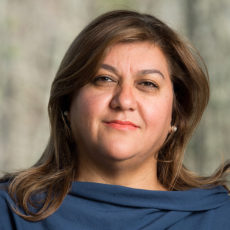Helen, yours is a long and successful career. What led you to Precigen at this point in time?
My path to Precigen was shaped by a deep-rooted commitment to advancing immunotherapies, a field I delved into early in my career at notable institutions like Scripps and NIH. This journey through academia and later, key roles in big pharma, culminated in significant achievements, including the development of Adalimumab, a major checkpoint inhibitor. My experiences provided a holistic view of the drug development process, from research to clinical application. The transition to Precigen was motivated by a desire to further innovate and accelerate the development of treatments, especially in light of the limited progress in treating various cancers. Despite advances, many cancers still exhibit low response rates to existing therapies, underscoring the need for more impactful innovations.
So it is a sense of urgency that motivated you to join Precigen?
Indeed. In fact, as an example, our team’s screensaver depicts the number of lives lost to cancer. This serves as a poignant reminder of the stakes involved in our work. It is not about creating a somber atmosphere but instilling a sense of urgency and responsibility in our team. Each day's delay translates directly to lives lost, a reality that resonates deeply with all of us at Precigen, many of whom have personal experiences with the diseases we are fighting. This reminder is woven into our DNA, pushing us to work faster and more efficiently, making it clear that taking extra time is not an option when lives are on the line. This mindset was a key factor in my decision to move into biotech, where the agility and innovation can significantly accelerate progress toward patient care.
Moving then to your solutions, in what sense is your UltraCAR-T Platform "ultra," and how does it address the challenges associated with existing CAR-T cell therapies?
Our UltraCAR-T Platform was developed in response to the limitations of existing CAR-T cell therapies, which primarily relied on viral vectors for gene delivery and faced challenges such as limited gene capacity, high costs, and lengthy manufacturing processes. Recognizing these issues, we aimed to differentiate our approach by employing a non-viral system that allows for the introduction of multiple genes simultaneously, thereby overcoming the constraints of viral vector capacity and manufacturing complexity. This innovation enables us to address the critical challenges of traditional CAR-T therapies, such as the need for centralized manufacturing and the risk of introducing mutations or malignancies due to viral integration.
Could you elaborate on the technologies and methodologies behind the UltraCAR-T Platform?
The cornerstone of our platform is the ultra-vector technology, which utilizes plasmids capable of expressing multiple genes. This is a significant departure from traditional methods, as it allows for the introduction of complex genetic constructs into T cells without relying on viruses. We employ electroporation as our non-viral gene delivery method, which, despite being viewed skeptically for commercial scalability, has been refined by our team to ensure high efficiency and cell viability. Our system, named the "ultraporator," is designed for rapid and efficient cell processing, capable of treating billions of T cells in just minutes. This innovative approach not only circumvents the limitations of viral vectors but also significantly reduces the time and cost associated with CAR-T cell therapy manufacturing, making it a groundbreaking advancement in the field.
Can you explain further how the UltraCAR-T Platform reduces costs compared to traditional methods?
The UltraCAR-T Platform can significantly reduce both the cost and time required to treat patients. Traditional CAR-T therapies involve a complex and lengthy process, spanning several weeks and costing hundreds of thousands of dollars. In contrast, our platform streamlines this to just 24 hours from cell extraction to infusion, potentially cutting costs dramatically. This efficiency is achieved by eliminating the need for cell activation, expansion, or the use of allogeneic (donor) cells, which require patient lymphodepletion. Our method employs the patient's own T-cells, enhanced with our ultra-vector technology, allowing for a rapid, personalized, and cost-effective treatment. This not only makes the therapy more accessible but also leverages the patient's body as a more effective treatment venue, with the potential for immediate and robust responses against cancer.
How do you ensure the safety of your CAR-T therapy, given its decentralized specificities?
The safety switch is a critical component of our platform, addressing potential safety concerns that arise from the decentralized production of CAR-T cells in hospitals worldwide. This feature allows for the immediate elimination of CAR-T cells in the event of adverse effects, offering an unprecedented level of control over the therapy. This mechanism contrasts sharply with viral vector-based therapies, which have a higher risk of manufacturing failures and integration-related malignancies. Our non-viral approach not only reduces these risks but also enables the incorporation of multiple genes, including the safety switch, enhancing both the efficacy and safety of the treatment. This innovation embodies the true spirit of precision medicine, enabling tailored treatments that can be rapidly adjusted to a patient's evolving needs, significantly advancing the field and offering hope for more effective cancer treatments.
In terms of your business strategy, do you intend on keeping your UltraCAR-T platform in-house or do you want to share it so that other companies and researchers could utilize it?
We are open to collaborating with other companies and licensing our platform for various indications beyond cancer. This flexibility stems from the unique advantages of our platform, such as its applicability to a wide range of diseases, including chronic conditions and neurological disorders. Our non-viral approach, especially with the safety switch, positions us uniquely in the field. The rapid, 24-hour 'manufacturing' process, from T-cell extraction to infusion, may not only cuts down costs dramatically but also aligns perfectly with the urgent needs of our healthcare system. By addressing the critical challenges of manufacturing, cost, and timely delivery to patients, our platform stands out as a paradigm-shifting solution in precision medicine.
In that respect, do you believe that the key to lowering drug prices is innovation rather than regulation?
Our strategy to tackle high drug prices is to focus on innovation and efficiency in drug development.
We aim to introduce technologies that significantly reduce the cost and time of drug development, thereby naturally lowering drug prices.
This approach requires not just internal innovation but also collaborative efforts with regulatory bodies like the FDA to streamline the approval process for new therapies. We are encouraged by recent regulatory openness to innovative therapies, especially for rare diseases. Our goal is to leverage this momentum to bring effective, safer, and more affordable treatments to patients faster, demonstrating a model for how biotech can address the pressing issue of drug affordability through technological and regulatory innovation.
Where do you see Precigen in five years?
In five years, I envision Precigen as a leader in gene and cell therapy, with our innovative platforms widely adopted across cancer centers and beyond. Our goal is for our UltraCAR-T platform to be recognized as the treatment of choice for precision medicine, offering precise and effective therapies to patients in need. We are particularly proud of our advancements in gene therapy, such as our accelerated path for approval in treating recurrent respiratory papillomatosis (RRP), a significant burden for patients from childhood. Our ambition is to change the paradigm of immunotherapy and contribute to the next wave of breakthroughs in the field, ensuring that our platforms and therapies bring substantial benefits to patients and truly advance the cause of precision medicine.





